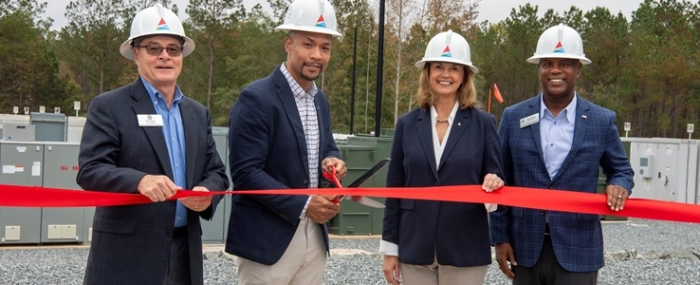
Georgia Power starts first battery storage plant in state
Located in Talbot County, the Mossy Branch BESS project will be run as a standalone unit. It will connect to and charge directly from the transmission grid, offering four hours of storage capacity.
US utility Georgia Power has brought online its 65-MW/260-MWh Mossy Branch battery energy storage system (BESS), which is expected to improve the resilience of Georgia’s electric grid.
Located near Columbus, in Talbot County, the BESS will be operated as a standalone unit. It will connect to and charge directly from the electric transmission grid, offering four hours of storage capacity, according to a report by Renewables Now.
The Mossy Branch project was cleared by the Georgia Public Service Commission in 2021. Finnish technology group Wartsila served as technology provider and engineering, procurement and construction (EPC) contractor.
The project utilizes Wartsila’s energy management system, GEMS Digital Energy Platform, to manage the facility and provide secure operations, and is built with Wartsila’s Quantum, a fully integrated, modular and compact energy storage system.
Currently, Georgia Power is working on a 265-MW battery storage project, which it plans to commission by end-2026. A few months ago, it picked the locations for four BESS projects with a total capacity of 500 MW.
“We know our customers depend on us to make the investments in our state’s power grid needed to deliver reliable energy to their homes and businesses around the clock,” said Kim Greene, chairman, president and CEO of Georgia Power. “Battery energy storage is an example of a new technology that will make our grid more reliable and resilient every day, and especially during extreme weather events. The Mossy Branch facility is an incredibly valuable addition to our grid and commercial operation of this site is a significant milestone in our continued work with the Georgia PSC to evolve and enhance Georgia’s power grid.”
“This (Mossy Branch BESS facility) will help us enhance reliability and resilience from years to come,” said Rick Anderson, senior vice president of Georgia Power’s east production group. “This will help through peak power demands or unforeseen disruptions.”

